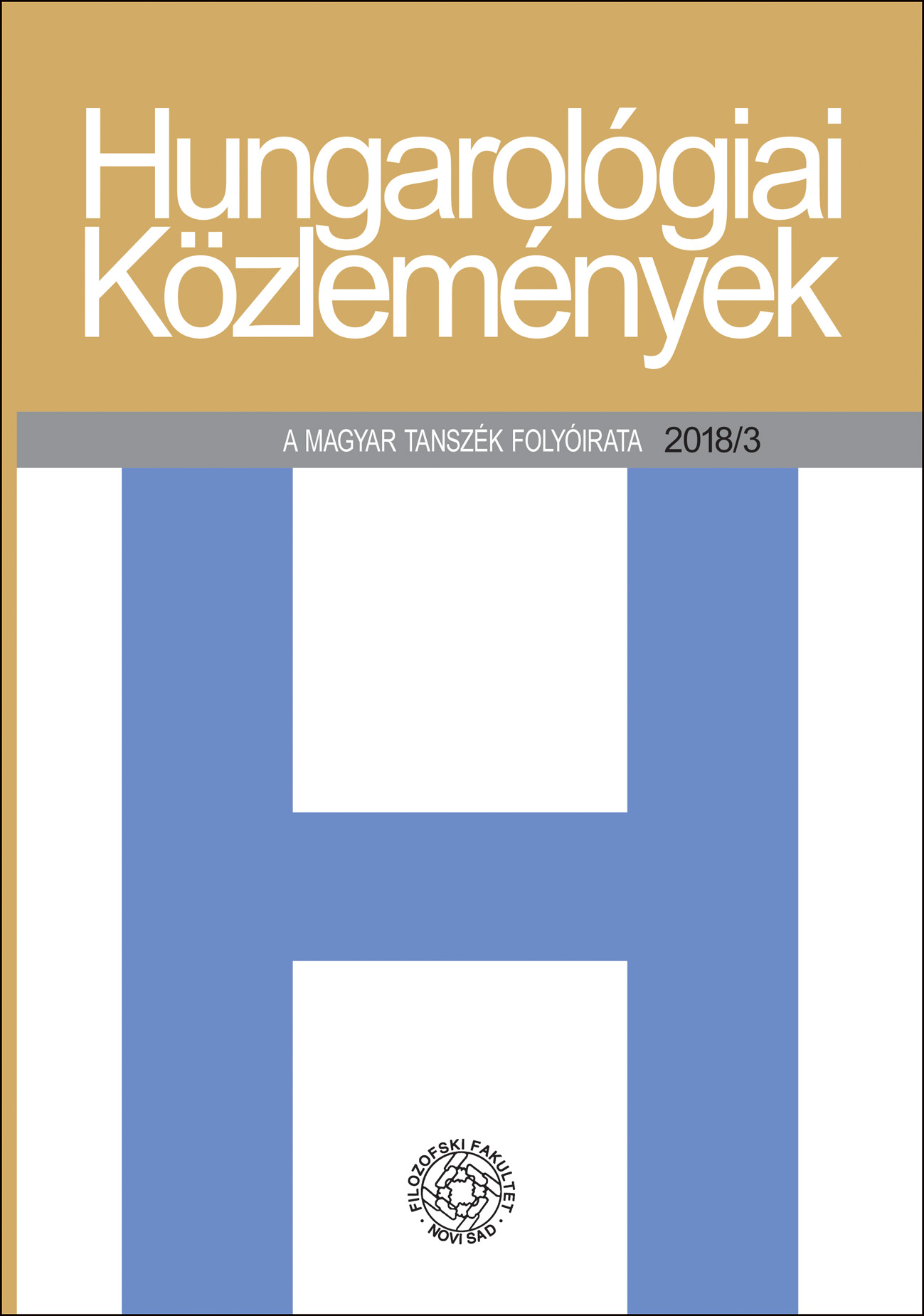Nézőpont és ideológia – a vészkorszak ábrázolása Tersánszky Józsi Jenő két regényében
Viewpoint and Ideology – The Depiction of the Era of Disaster in Two Novels by Józsi Jenő Tersánszky
Author(s): Zoltán Z. VargaSubject(s): Hungarian Literature
Published by: Филозофски факултет, Универзитет у Новом Саду
Keywords: era of disaster; fiction; character’s viewpoints; ideological analysis; Tersánszky
Summary/Abstract: Two novels by Józsi Jenő Tersánszky, III. Bandika a vészben (Bandika III in Disaster) published in 1947 and the Egy kézikocsi története (The Story of a Handcart) published in 1949, serve as the framework for the fiction of an exceptionally tragic event during Hungary’s engagement in World War II, known as the era of disaster or the siege of Budapest. The novels, even taking on the risk of being didactic, took up a position in a moral question concerning a whole community, and outlined a persuasion model and strategy for revealing the causes of the nature of this collective, traumatic historical event. By examining the narrative-poetic tools employed in the stories (the assessing “ideological” function of the authors’ narrative point of view, the direct and indirect dichotomy of values in the characters’ pretentious language and differing phraseology or overhearing of the character types, etc.), the study casts light on the way works of fiction are indirectly in the service of convincing the (contemporary) reader, as well as on the way they can be read in the still open field of interpretation of the recent historical events as a linguistic-literary assault against an ideologically not yet annihilated outlook (Nazism, Anti-Semitism, Fascism). The non-human protagonists’ viewpoint under no condition becomes an allegorical counterpoint, but rather serves the familiarisation of the whole story, and the ridiculousness and humour that unfolds from it counteracts the didactic social-political dialogues of the novel, or rather the direct ideological moulding of the figures taken from literary genres or typified social characters along with the argumentation that unfolds through the speeches and actions of the characters.
Journal: Hungarológiai Közlemények
- Issue Year: 19/2018
- Issue No: 3
- Page Range: 11-25
- Page Count: 15
- Language: Hungarian

